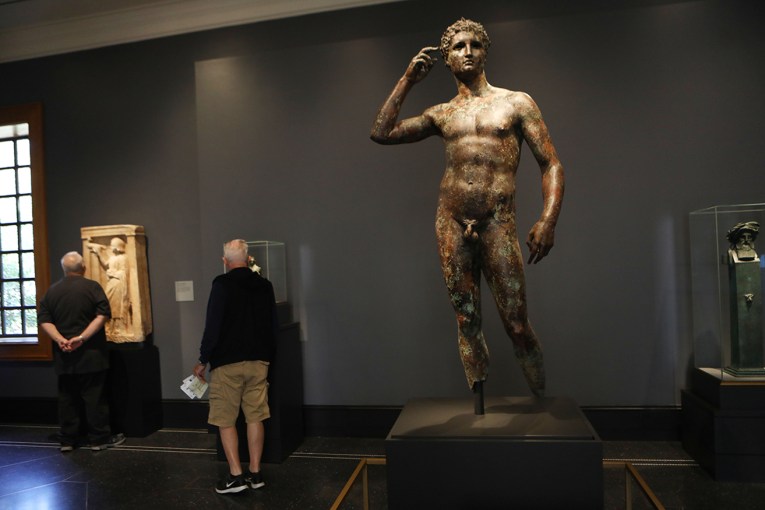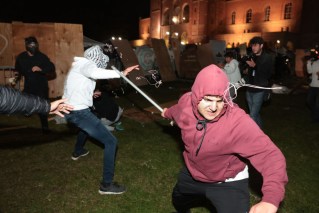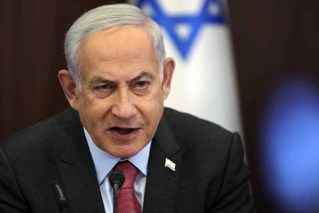‘I am thrilled to be alive’
An American doctor infected with Ebola has left his isolation unit and warmly hugged his doctors and nurses, showing the world that he poses no public health threat one month after getting sick with the virus.
Dr Kent Brantly called Thursday a “miraculous day”.
Brantly and his fellow medical missionary, Nancy Writebol, who was quietly discharged two days earlier, are still weak but should recover completely, and no one need fear being in contact with them, said Dr Bruce Ribner, who runs the infectious disease unit at Emory University Hospital.
Brantly’s reappearance was festive and celebratory, a stark contrast to his arrival in an ambulance under police escort three weeks earlier, when he shuffled into the hospital wearing a bulky white hazardous materials suit.
“I am thrilled to be alive, to be well, and to be reunited with my family,” Brantly said, choking up as he read a written statement. Then he and his wife turned and hugged a parade of doctors and nurses, hugging or shaking hands with each one. For some, it was their first direct contact without protective gear.
After Brantly, 33, and Writebol, 59, were infected while working with Ebola victims in Liberia, their charity organisations, Samaritan’s Purse and SIM, reached out to top infectious disease experts for help.
Working connections, they obtained one of only five courses available worldwide of an experimental drug known as Zmapp, and Brantly and Writebol split the doses before being evacuated to Atlanta. The other four were later given to a Spanish priest, who died, and three doctors in Africa, who have been improving.
Brantly briefly described how they confronted Ebola back in Liberia. He said aid workers had begun “preparing for the worst” after learning of the outbreak in March, and saw their first patient in June. Soon, many more arrived.
He said his team took all the precautions they could. After his wife and children returned to the US for a family wedding, he focused on work, moving patients to a bigger isolation unit. Three days later, he woke up feeling sick, and was diagnosed with the disease.
His doctors cautioned that it’s unclear whether the drug or a blood transfusion Brantly got from a young Ebola survivor in Africa was helpful or hurtful. The drug is so novel that it hasn’t been tested in people, and might not have made any difference at all.
“Experimental means exactly that. They are the very first individuals to have received this treatment and frankly we do not know,” Ribner said.
Both patients were discharged after their medical team made sure they won’t infect others. Their blood tested clean of the virus, which is spread only through direct contact with the bodily fluids of sick people experiencing symptoms. Ebola survivors generally are not contagious once they’ve recovered.








